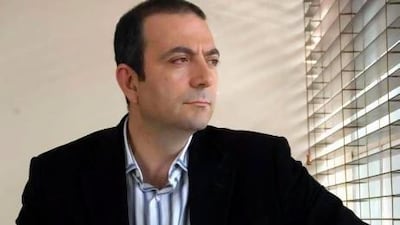Omar is the sensational new film from the Paradise Now director Hany Abu-Assad. As with his 2005 hit, the action takes place in the Palestinian Territories. But whereas Paradise Now concentrated on the repressed Palestinians only, Omar's protagonists come from either side of the literal fence.
The action starts with the young baker Omar (the newcomer Adam Bakri) climbing over the separation wall – dodging surveillance cameras and bullets in the process -– so that he can see his secret love Nadja (Leem Lubany). Fed up with being constantly harassed, Omar and his joke-spewing friends Amjad (Samer Bisharat) and Nadja’s brother Tarek (Eyad Hourani) decide to exact some revenge and shoot an Israeli solder.
Abu-Assad cleverly doesn’t even bother with the whys and wherefores of their actions. After all, it would be a very blinkered spectator who didn’t know that Palestinians and their Israeli occupiers were not the best of friends.
“I feel it’s a more mature movie because of this,” he told The National on the Cannes beachfront. “Politics is not the issue. It’s really about when you make a decision – a not well-prepared decision -– what is the consequence of that. It’s about human behaviour rather than political discussion.”
In the mayhem that follows the shooting, Omar is caught and imprisoned. It’s here that Abu-Assad shows a penchant for doubletalk, ramping up the dramatic stakes, as it becomes apparent that the characters are not to be taken at face value.
Omar is trapped and facing the prospect of Nadja being exposed to public scrutiny. Sensing weakness, the Israeli secret service agent Rami (Waleed E Zuaiter, brilliant) tries to cut Omar a deal: betray his friends in exchange for freedom and Nadja’s honour. What follows is an exciting thriller, with constant twists and turns and an ending even more surprising and powerful than the one in Paradise Now.
“This film is a mix of genre and styles, it’s a mix of comedy and tragedy,” says the 51-year-old. “Let's say the genres I tried to really capture are the dramatic love story and the political thriller. And a thriller has paranoia; the chase, the suspects and the surprise. But you don’t want to make a chase that has been done before, I did a more realistic chase, everything is believable. I didn’t even use music in the chase sequence. I’m very pleased by the chase scenes.” The $2 million (Dh7.3m) film is about trust, love, friendship, betrayal and revenge. “I think this movie is more of a mainstream movie than my previous film,” says the director. “But it’s not a mainstream movie, I just play to that. It’s not because I want to catch the American audience, or the international crowd or even the Palestinian audience. After all, the Palestinian audience is very far from art-house cinema. I just thought, why should I leave entertainment to Walt Disney? I feared that on judgement day, if it comes, I would be asked why did I leave entertainment to Walt Disney?”
The final scene brought an audible gasp from the audience in Cannes. Abu-Assad argues that the ending will alienate some international audiences. However, when I point out that the film has a Hollywood ending for Arabs, the director chortles: “That’s brilliant, I’m going to use that in interviews from now on.” It’s a fair exchange for around 100 minutes of high entertainment.
Follow us on Facebook for discussions, entertainment, reviews, wellness and news.
Follow us


